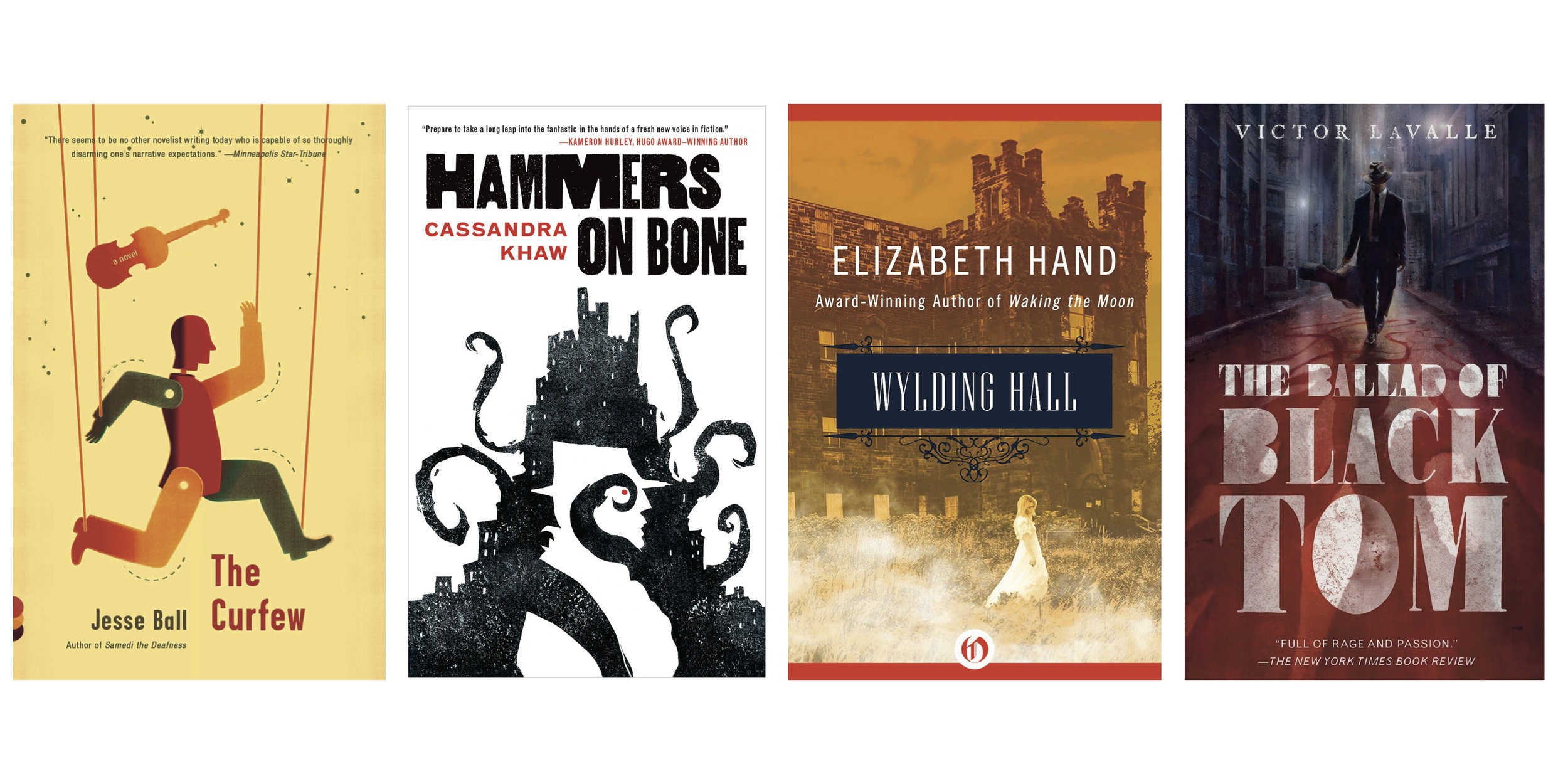Book Nerd: Library Chicken Weekly Scoreboard (4.25.17)
Welcome to the weekly round-up of what the BookNerd is reading and how many points I scored (or lost) in Library Chicken. To recap, you get a point for returning a library book that you’ve read, you lose a point for returning a book unread, and while returning a book past the due date is technically legal, you do lose half a point. If you want to play along, leave your score in the comments!
In the interests of full disclosure, I should mention that due to our Tuesday publication date, this “week” was actually closer to 10 days—because we pride ourselves on ACCURACY here at Library Chicken HQ.
Fanny Kemble’s Civil Wars by Catherine Clinton
Journal of a Residence on a Georgian Plantation in 1838-1839 by Fanny Kemble
Fanny Kemble was a celebrated British actress—part of the famed Kemble/Siddons theater family—who came to America on tour and fell in love with a wealthy American, Pierce Butler. What she didn’t know when she married Butler was that his family’s wealth came from large plantation holdings on and around St. Simon’s Island, Georgia. (For my Hamilton fans out there: the Butlers were friends of Aaron Burr and it was to their plantation that he fled to hide out after The Duel, when New York charged him with murder.) As Fanny was an ardent abolitionist, this caused a problem or two. Her husband, an absentee landlord most of the time, really didn’t want her anywhere near his plantation or his slaves, but he did allow her to spend one year down there, during which she wrote her Journal. The marriage eventually fell apart in dramatic fashion (detailed in Clinton’s biography) and Fanny, who had become known as a memoirist, eventually published the Journal. It’s a fascinating if grim read about life on an isolated plantation in the Deep South, where the authority usually rests in the hands of a hired overseer, often the only white man present, whose only concern is to provide a good-looking balance sheet for the absentee owner. Fanny was especially interested in the lives of enslaved women, recording details of their lives that other (male) witnesses may never have seen or heard about. I read these as part of ongoing prep for the Georgia history class (and let me tell you, Fanny was not a fan of the Peach State).
(LC Score: +2)
Ancillary Sword by Ann Leckie
Ancillary Mercy by Ann Leckie
SPACE OPERA. Leckie, as you may have heard me say, is my new hero. A stay-at-home-mom, she was in her mid-40s when she published her first novel, Ancillary Justice, which then went on to win just about every award in the science fiction genre. I made Amy read it with me for the podcast and we’re due to talk about it next time around (as soon as the stars and our schedules align). SPOILER: I thought it was pretty darn good. Leckie explores gender and personhood in wonderful and original ways, plus people get to shoot at each other with ray guns! So of course I had to pick up books two and three in the trilogy and finish them off. If you’re already a SF fan: c’mon, read Ancillary Justice already. I know you’ve heard of it. What are you waiting for? If you’re most emphatically NOT a SF fan: well, this is definitely very science-fiction-y science fiction, so maybe give it a miss as it’s probably chock-full of all the things that annoy you about the genre. If you don’t know if you’re a SF fan or not: this series is a great example of some of the exciting things that are happening in modern SF right now—pick up the first book and give it a try!
(LC Score: +2)
Quite a Year for Plums by Bailey White
Nothing With Strings by Bailey White
I am on record as not loving the sort of Southern fiction where everyone is always hot, sweaty, and barefoot, and every attic room houses an insane cousin/brother/uncle (looking at you, Faulkner), but I do love Bailey White and her stories of Southern small towns (primarily in Georgia, Alabama, and Florida), where eccentric elders spend their time fussing over the younger generation and vice versa. As part of my quest to immerse myself in everything Georgian, I’ve been treating myself to a reread of her work.
(LC Score: +2)
The Shadow Guests by Joan Aiken
Joan Aiken’s YA/children’s novels are a bit hit or miss for me. I find them to be an unpredictable mixture of entertainingly gothic and unpleasantly grim. I’ve had this one on my shelves forever (for Atlantans: it had an Oxford Too stamp inside, so you know I bought it a while ago) but I was excited to pick it up and find a promising beginning, with a young boy sent to Oxford, England to live with his aunt in a house not entirely ghost-free (reminiscent of the Green Knowe series). Ultimately, however, it came down on the grim side for me.
(LC Score: 0, off my own shelves)
Mr. Midshipman Easy by Frederick Marryat
My dad insisted that I stop everything and read this book, a mostly forgotten classic set during the Napoleonic Wars and written by a friend of Charles Dickens. The title character is raised by an philosopher father, whose eccentric beliefs include the idea that everyone is equal. Friends of the family conspire to get the son into the navy, in the hopes that he will rid himself of these patently ridiculous ideas passed down from his father, but it takes a while, as young Easy has been trained to argue every point and will happily do so all day. My dad <ahem> may have said that the character reminded him just a teensy bit of my younger son.
(LC Score: +1)
Observatory Mansion by Edward Carey
GUYS, I LOVE Edward Carey. Have I told you how much I love Edward Carey? Have I told y’all to run, not walk, to your nearest bookstore and buy his Iremonger trilogy (beginning with Heap House) for your favorite middle/high schooler, though of course you should really read it first before passing it along? The trilogy that Carey wrote after moving to Austin, Texas from England because, as he says, he missed feeling cold and gloomy? Have I told you how delightfully bizarre and weirdly Dickensian his books are? My only complaint about Carey is that he doesn’t write fast enough. Aside from the Iremonger trilogy, he’s written two books for adults: Alva & Irva: The Twins Who Saved a City (very very strange—read it immediately) and this one, his first novel, with a narrator who works as a living statue, collects (i.e., steals) important objects from the people around him for his private collection, and never ever takes off his white gloves. Carey is interested in what happens when you objectify people and personify objects and really I have no idea what’s happening, but I LOVE him SO MUCH, GUYS.
(LC Score: 0, because my library didn’t have it and I had to buy my own copy, darn)
Victoria the Queen: An Intimate Biography of the Woman Who Ruled An Empire by Julia Baird
After catching a few episodes of Victoria on Masterpiece Theater I thought this would be a fun read—but apparently so did everyone else. RETURNED UNREAD (because it was due and had holds and I’m in the middle of this whole Georgia thing right now anyway).
(LC Score: -1)
Library Chicken Score for 4/24/17: 6
Running Score: 11 1⁄2
On the to-read/still-reading stack for next week:
Georgia: A Brief History by Christopher Meyers and David Williams (like I said...)
After O’Connor: Stories from Contemporary Georgia edited by Hugh Ruppersburg (hopefully not too many sweaty barefoot insane cousins)
A Paradise Built in Hell: The Extraordinary Communities That Arise in Disaster by Rebecca Solnit (because Solnit is wonderful and I’m obsessed with disasters)
The Invisible Library by Genevieve Cogman (because I will read anything with “Library” in the title!)









































SUZANNE REZELMAN is home | school | life magazine’s Book Nerd. Subscribe to home/school/life to read her brilliant book recommendations and literary musings every issue. Your library list will thank you.